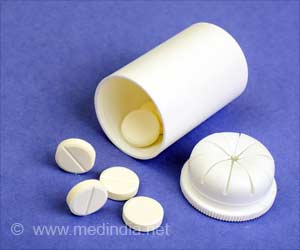An 'orphan drug' used to treat sleep disorders may be potent cancer-fighting agent, say researchers.

Myc traditionally has been considered an "undruggable" oncogene because it is not readily neutralized by the kind of small, stable molecule that would work as a cancer drug. Even if such drugs existed, they would likely disable Myc in normal cells as well, which would create toxic side effects.
"Fortunately, Myc-driven cancer cells have an Achilles heel," Grandori said. "Their rapid growth and division damages their DNA, and they rely on other genes to repair that damage. Disabling those genes can cripple the cancer's ability to grow."
Grandori and colleagues found more than 100 genes which, when blocked, caused the death of Myc-driven cancer cells but not normal cells. This suggests that each of these genes is a potential target for a new, nontoxic cancer therapy.
One of these genes, CSNK 1 epsilon, is especially promising. Not only does silencing it kill cancer while sparing normal tissue, but an inhibitor for the enzyme it produces already exists: a compound that originally was developed to modulate sleep cycles.
"It had been sitting on a shelf for years, like the thousands of other 'orphan' drugs that are abandoned when they prove ineffective for their intended use," Grandori said.
Advertisements
She implanted special laboratory mice with Myc-driven neuroblastomas (a deadly cancer of the nervous system that often strikes children), and treated half of them with the new compound. The untreated mice quickly died of their tumors, but the treated mice thrived and their neuroblastomas shrank away.
Advertisements
Grandori feels that the combination of high-throughput screening and siRNA silencing has the potential to radically change the way cancers are treated.
"We've barely scratched the surface," she said. "These techniques are incredibly powerful, but they're new and not widely known. There are thousands of researchers who could apply this approach to their work. In the right hands, it could speed up the development of new cancer therapies a thousand-fold."
Source-Eurekalert















